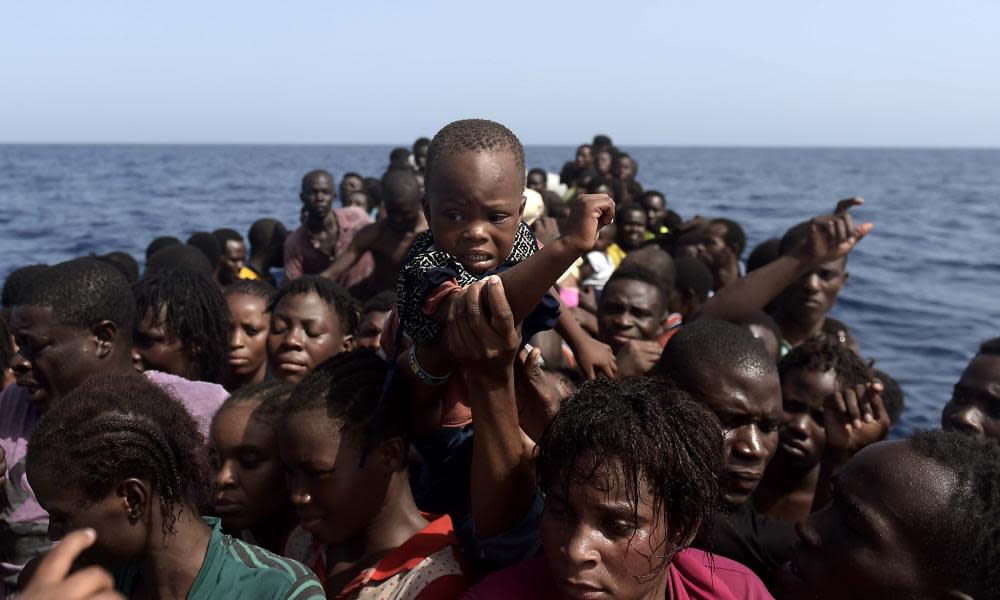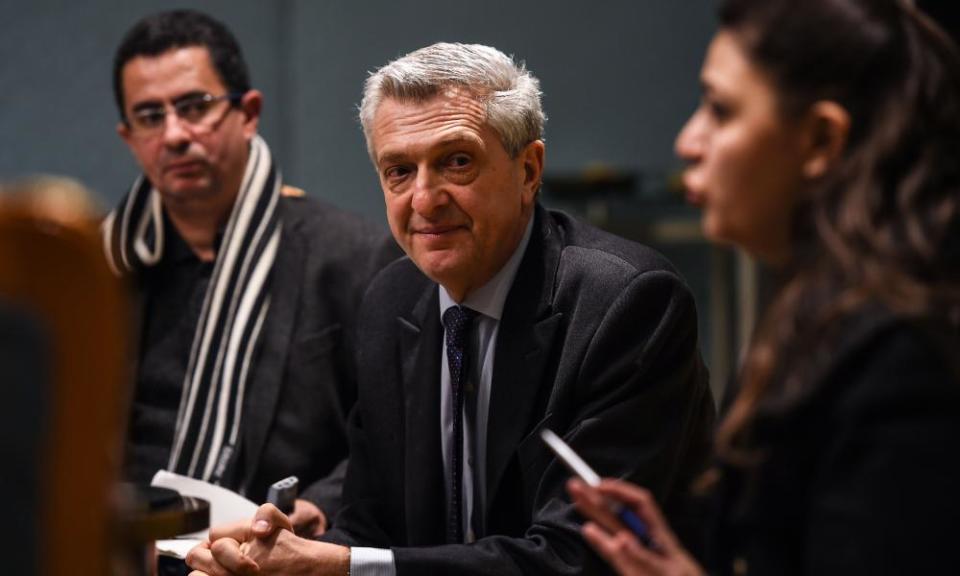UN refugee chief: I would risk death to escape a squalid migrant camp

The head of the UN refugee agency has said he too would do “anything” to escape if he was stuck in a squalid refugee camp, as he called on the world’s wealthy nations to properly fund services in developing countries.
Speaking to reporters after meeting the Egyptian president, Abdel Fatah al-Sisi, Filippo Grandi, the high commissioner for refugees, said countries are not getting enough recognition for hosting refugees, and that he would campaign for Cairo to receive more bilateral development aid to support its efforts.
According to the latest figures, Egypt hosts more than 242,000 registered refugees of 58 different nationalities, mainly concentrated in Greater Cairo, Alexandria and the north coast, 55% of them fleeing the war in Syria.
While migrant flows to Europe across the dangerous Mediterranean sea route had fallen sharply, Grandi said, that decline had not reduced the number of people fleeing war and poverty flocking to holding camps in places like Libya.

“If I was a refugee or a migrant or anybody going into this centre I would opt for anything to get out of there, even if I knew the risk of death was very high,” Grandi said, adding that what Libya needed was help to enforce the rule of law instead of just naval support, as well as aid to stop illegal people trafficking.
Seeking similar arrangements to those in eastern Europe, EU leaders have been urging Egypt to help stem the flow of people entering Europe from Africa, offering to step up economic cooperation as an incentive.
Cairo, however, has stopped short of setting up the “disembarkation platforms” Europe seeks, where people rescued at sea could be dropped off for screening.
Grandi made his comments as Spanish charity Proactiva Open Arms said on Monday that Spanish authorities were preventing its ship from setting sail in the Mediterranean.
“We are blocked in a port once again. Port Authority in Barcelona denied permission to Open Arms to sail Med Central,” the charity wrote in a tweet.
“Preventing us from saving lives is irresponsible and cruel. Cowardly politicians are putting in place a counter for the dead,” added Proactiva Open Arms founder Oscar Camps in a separate tweet.
Proactiva Open Arms operates between Libya and southern Europe, coming to the aid of those who get into difficulties during the crossing from northern Africa.
The charity’s ship, the Open Arms, docked in southern Spain on 28 December, with 311 mainly African migrants it had plucked from the sea off Libya, after both Italy and Malta denied the boat entry.
Spanish authorities said the vessel had violated maritime regulations by ignoring “the obligation to leave those rescued at sea at the nearest port”.
Spain became Europe’s main entry point for refugees last year, overtaking Greece and Italy, which have taken measures to prevent those rescued from landing in its ports.

 Yahoo News
Yahoo News 
